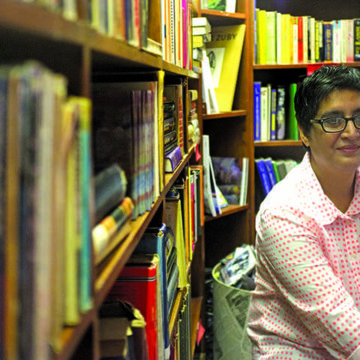- About
- Topics
- Picks
- Audio
- Story
- In-Depth
- Opinion
- News
- Donate
- Signup for our newsletterOur Editors' Best Picks.Send
Read, Debate: Engage.
The repression of people from Balochistan is not a well-known issue. One of the reasons it is not well-known is because of the military-governmental complex that forms the Pakistani State does not want people to know about it. It kidnaps, tortures, murders people from the region – Pakistan's largest and least-densely populated province. Among the reasons for conducting such actions are growing Baloch consciousness and separatist movements, the shift towards a more human-rights oriented discourse in public debate and a proposed deal with China that will transform Pakistan into a land-corridor connecting the Arabian sea with the Asian giant.
But that's about to change. In an attempt to frighten the small liberal community of social activists in the country, Sebeena Mahmud (or Mehmud) was shot and killed outside of an event she had organised. This cynical and brutal effort in rubbing-out Mahmud, a prominent women's rights activist and community organiser, has succeeded in frightening dissident voices in Pakistan, but has globally backfired: the so-called “deep-state” or military-governmental complex made up of spy agencies and senior military officials has been criticised the world over, many believing it to be responsible for the killing. After all, it operates shadily and violently to uphold the ultra-nationalist establishment, and will brook no dissidence; hence the conclusion - this is why Mahmud was killed.
Outside of The Second Floor (T2F) Mahmud's Karachi-based cafe and art-space which aims to provide a platform for locals to explore artistic and political ideas, she was shot four times. She was leaving an event she had herself organised about Balochistan's “disappeared” - those people who have been kidnapped and murdered by the State's agencies, only to be found (if at all) years later.
Mahmud's mother who accompanied her out of the event was also shot, but fortunately her wounds were not fatal. The event brought together several Baloch campaigners, including Mama Abdul Qadeer who is perhaps the person the Pakistani State is most concerned about. As the Guardian writes about him: “he is a 73-year-old who in 2013-14 walked 1,200 miles from the Baloch capital of Quetta to Islamabad to protest about missing people, including his own son who was found dead and mutilated in 2011 having vanished in 2009.”
And although the miliatry spokesman, Asim Bajwa may have decried the killing as “tragic and unfortunate”, authorities are well-aware that the brute killing of Mahmud will have done a lot nationally to silence opposition to Baloch repression, and protests against turning the nation into a thoroughfare to the ocean for a much more repressive but wealthy China.
By inviting Qadeer, Mahmud knew she was running a risk, asking her Facebook friends beforehand about what pre-emptive measures she could take to prevent violent unrest or challenges to the event. However scared she was, she went ahead to promote free and important discussion about rights and transparency in a nation too-frequently willing to sacrifice both in the name of violent and passionate nationalism.
The collusion of nations and national institutions in pursuing commercial interests is always sketchy, and it's worst, cynically violent. However, in its cynicism, Pakistan has brought attention to the very thing it sought to suppress: its gruesome human rights abuses.
